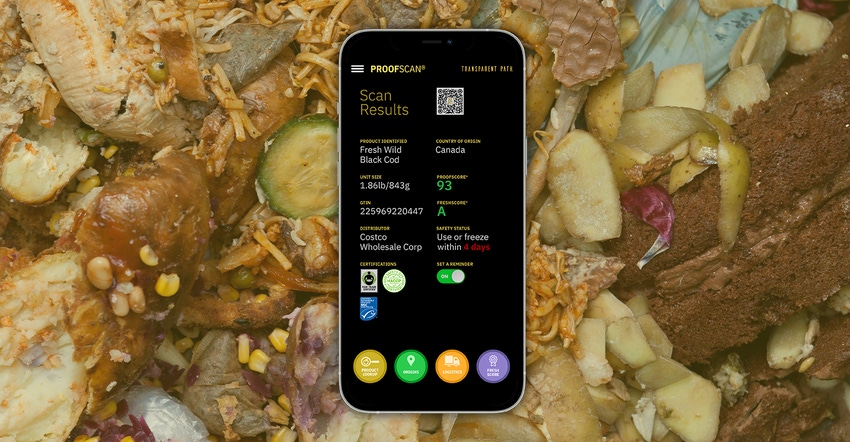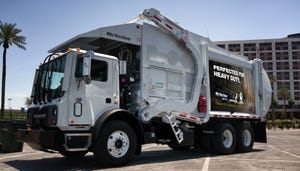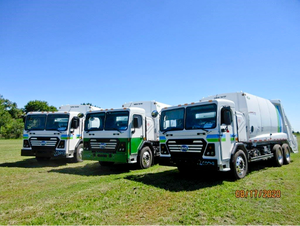ReFED Supports Innovators in De-Risking and Scaling Food Waste Solutions: Part 1
ReFED estimates that halving food waste by 2030, leveraging existing identified models, would require $18 billion a year, including $5 billion in catalytic funding. In response, the national nonprofit launched a Catalytic Grant Fund to provide monies to de-risk and scale solutions to food waste, from prevention to food recovery to recycling. The hope is that what these innovators do with the money will unlock more funding from traditional sources and accelerate their impact in ways that would be unlikely without this initial boost.

About 38% of the 241 million tons of the U.S. food supply went unsold or uneaten in 2021, most which wound up on landfills, got burned, or left to rot in fields— carrying heavy financial and environmental costs. Nonprofit ReFED established a Catalytic Grand Fund to support innovators working to turn the tide on this swelling waste problem, seeing that good food gets put to use.
In this two-part series you will learn how the grant works, what it and its recipients are accomplishing, and with funding from who. Part 2 tells a recipient’s story, coming straight from the ambitious startup’s CEO and founder, Eric Weaver.
ReFED estimates that halving food waste by 2030, leveraging existing identified models, would require $18 billion a year, including $5 billion in catalytic funding. In response, the national nonprofit launched a Catalytic Grant Fund to provide monies to de-risk and scale solutions to food waste, from prevention to food recovery to recycling. The hope is that what these innovators do with the money will unlock more funding from traditional sources and accelerate their impact in ways that would be unlikely without this initial boost.
"Catalytic capital is risk-tolerant and laser-focused on impact potential. And it’s patient [realizing impact can take time],” says Angel Veza, senior manager, Capital, Innovation & Engagement at ReFED.
A good example: a $100,000 research grant that the Bill & Melinda Gates Foundation endowed in 2012 to then-unknown Apeel Sciences to reduce post-harvest food waste. Fast forward 11 years and the California-based company, now widely recognized for its shelf-life extension work, is saving about 33 million pieces of fruit from going to waste every year.
Anyone can apply for funding through open calls – as long as they meet ReFED’s eligibility criteria and have an initiative related to the targeted focus, which in the last round was targeting consumer food waste. In November 2022, the most recent open call, 280 submissions poured in; applicants requested around $99M.
“This is more evidence of what we have been seeing—that we need to bring more funders into this space. And we are finding exciting solutions that I don’t think would have been covered otherwise,” Veza says.
How realistic is the goal to cut food waste by 50% in the next seven years?
It’s hard to say, Veza says.
“Funding has accelerated in recent years. This makes me optimistic, but we are not close to our goals.”
In total, at least $10B in direct private funding and $200M in philanthropic funding have gone to food waste solutions over the last 10 years.
For a while, private investments clustered around meal kits, “imperfect produce” channels, and shelf-life extension products. But lately this sector is especially interested in demand planning, cold chain management, and mark-down alert apps.
Corporations and other private donors like these solutions because they have large, addressable markets, meaning big prospects to scale, and opportunity to support a robust financial return, Veza observes.
Philanthropic funding has historically focused on the food rescue space. That’s because they can tap into immediate metrics to proxy for impact, she surmises—numbers of meals provided, pounds of food recovered, etc. Moreover, philanthropic funding is typically geared toward charitable causes.
Hidden Gems is among recent recipients. The young, Philadelphia-based company makes a nutrient-dense drink from extract of avocado seeds, then composts the seeds, which break down in a week as a result of the extraction process.
Their suppliers are guacamole manufacturers who would otherwise landfill what to Sheetal Bahirat, founder of Reveal/Hidden Gems, is a precious find. But, like any startup, she’s feeling growing pains.
“These projects take time. I tell a manufacturer I want you to treat what you have considered waste like a food ingredient. It has to be temperature controlled. You can’t throw it on the floor. Manufacturers would have to add another employee and space for the [process].”
And the big one – she has to show them she has the demand for it to be worth their time and effort.
That’s something she’s still working on— beefing up demand and at the same time building a consistent supply chain.
“It’s a fragmented supply chain. Most companies are not looking just for seeds like us.”
Securing funding has been hard.
“Conventional investors want to see quick turnaround and quick growth. But we have to build our supply chain one step at a time. It’s like controlling a tap. We have to turn the tap on and off depending on supply and demand,” Bahirat says.
A future goal is to add not only more guacamole manufacturers but stores and restaurants as suppliers. Working with them would entail building a reverse distribution system to pick up from multiple locations and bring the seeds back to her operation.
She plans to spend the $50,000 from ReFED to get started on this future planned step.
ReFED Catalytic Grant recipient Transparent Path provides computer technology to create visibility into supply chains for perishable goods. Sensors track shipping containers’ locations and conditions, and real-time alerts go out if there is a problem.
The company also developed an algorithm to follow details like harvest dates, packaging dates, and sell-by/best-by dates. The data enables food operations to anticipate how fresh a shipment will be before it reaches the grocery store. And the startup is working on a mobile app to give consumers real-time information on freshness as well as to remind them to use the food in their fridges before it spoils.
Eric Weaver, founder and CEO of Transparent Path, bootstrapped in his early days, lassoing in angel investors and also turned to equity crowdfunding. He’s secured funding from such corporate moguls as Intel and T-Mobile. But the road wasn’t always smooth.
“Early on, I also spoke with a lot of venture capital firms – primarily to research their appetite for this new area, but also to learn what we’d need to do down the road. I had a lot of responses like ‘that’s nice,’ but come back to us when you have more traction.”
This year came a huge shot in the arm with the $137K Catalytic Grant from ReFED to build out the app and finetune the AI.
As society supports a bigger, hungrier global population, in a time of resource depletion, reducing waste and environmental impact will become even more critical, he says.
“That’s why we think our timing is good. We want to paint a picture of a world with better, smarter, more agile and efficient food production and distribution. The ReFED grant is a hugely appreciated sign that we’re not the only ones who want this kind of change.”
ReFED has distributed just over $1M in grants to 10 organizations in the last year. Funding has come from Google, Posner Foundation, The Betsy and Jesse Fink Family Foundation. Others continue to reach deep in their pockets, including Kroger Foundation, Walmart Foundation, and General Mills.
About the Author(s)
You May Also Like




